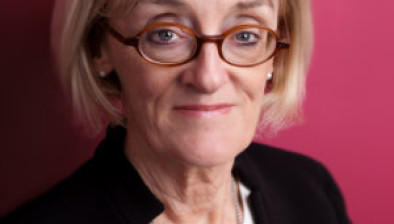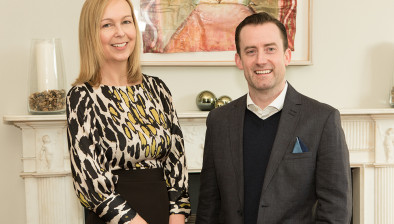NI High Court: Mother entitled to relocate son to Poland despite father’s claim he will ‘lose his dad’

Northern Ireland’s High Court has determined that it is in the best interests of a child to be relocated to Poland, where he has family ties and where his mother’s new husband is based.

About this case:
- Citation:[2022] NIFam 41
- Judgment:
- Court:NI High Court
The court noted the emotional impact that refusing the application could have on the mother and, in turn, the son.
Background
This decision related to the mother’s application pursuant to Article 8(1) of the Children (Northern Ireland) Order 1995 for an order to permit her to relocate to Poland with her son, “Aleksander”, aged six years and five months old.
The application was supported by the mother and her new husband, who currently lives in Poland, and was opposed by the father.
The mother and father were originally from Poland, but were brought to Northern Ireland when they were children. After ending their relationship, Aleksander lived with the mother, although the father had continued contact with his son.
In February 2020 the mother had another son, to the husband, and they were married in August 2020. Her intention was to live with the husband in Poland if the court was to grant her application.
In November 2019 the mother visited Poland with Aleksander, with the consent of the father, for a holiday. However, due to pregnancy complications and then the Covid pandemic, she did not return for over a year until the father brought a case against her, establishing that Aleksander was habitually resident in Northern Ireland.
The mother’s evidence
Under cross-examination it was argued that the mother would be unlikely to abide by any contact arrangements to allow the father to see Aleksander if the court was to grant her application and Aleksander moved to Poland.
However, the court found that her earlier refusal to return from Poland had been the result of medical advice and the Covid pandemic. The court noted that she had booked a return flight and had only brought a small amount of luggage with her. She was found to be a credible witness.
She claimed that her parents, both Polish, lived in Northern Ireland and intended to return to live in the same Polish village as her and Aleksander, if the court granted the application.
She also noted that the father could have contact with Aleksander in Poland, and noted that there was holiday accommodation in the immediate area of the planned relocation.
The husband’s evidence
The husband was also found to be a straightforward witness who was telling the truth. The father argued that the husband could simply relocate to Northern Ireland, so that Aleksander would not be removed from the jurisdiction.
However, the husband spoke no English and had no qualifications that would allow him to find suitable employment in Northern Ireland. He also was responsible for running his family’s farm in Poland and had caring responsibilities for his 74-year-old father.
He was also employed in forestry work, and had existing contracts, which he could not abandon without facing penalties.
The court accepted that it would be both unviable and unrealistic to expect him to come to live in Northern Ireland. The court also found that, if the application were to be granted, he would do, “what he can to promote the relationship between Aleksander and the father”.
The father’s evidence
The father’s objections to relocation were essentially because he believed that this would cause a reduction in his contact with his son, which would result in their relationship being significantly adversely affected.
He said “why should I suffer from not having my son here…?” and believed that if the application was granted Aleksander would “lose his dad”. He was also concerned about Aleksander losing contact with his paternal family and having to “start from scratch in Poland”.
The father was also sceptical of the mother’s compliance with future contact, describing her proposals for contact as “too good to be true”. He noted that the mother remained in Poland with Aleksander for a year and that he had to instigate Hague Convention proceedings to ensure that she would return home.
Consideration
In considering the application, the court noted two reports from Court Children’s Officers. These were somewhat contradictory, with the first not supporting the decision to relocate, given that there was a lack of clarity and that it was unclear how the move would “advance Aleksander’s quality of life”.
The second and more recent report, however, concluded that “the overall benefits for Aleksander will outweigh any perceived losses if the relocation is permitted by the court”.
The second report found that Aleksander’s personality was such that he would likely adapt and make friends if he relocated. It highlighted that there may be a detrimental effect on the mother’s emotional wellbeing and this could in turn affect Aleksander if the application was refused.
In considering the relocation, the court found that Aleksander was too young to take into account his wishes and feelings. However, the court accepted that his educational needs could be met in Poland and, on balance, “his education will be enhanced by being taught in his first language”.
For his emotional needs, the court found that it would be better for Aleksander to live with his mother and stepfather rather than with his father, noting that his mother had been his primary carer for the majority of his life.
The court was also satisfied that the mother would facilitate and support appropriate contact with the father. The court accepted that there had been contact issues in the past, but noted that she was permitted to take Aleksander to Poland for a holiday in the summer of 2022 without issue.
Conclusion
Ultimately, the court found that if relocation was refused, the mother would be likely to suffer emotionally and psychologically, which would adversely affect Aleksander, amounting to a risk of harm in the future.
This could be avoided if relocation was granted and Aleksander went to live in a stable, family atmosphere, where his Mother, his primary carer, was emotionally stable and secure.
As such, the court granted a residence order in the mother’s favour and an order permitting relocation, concluding that relocation was in Aleksander’s best interests.









